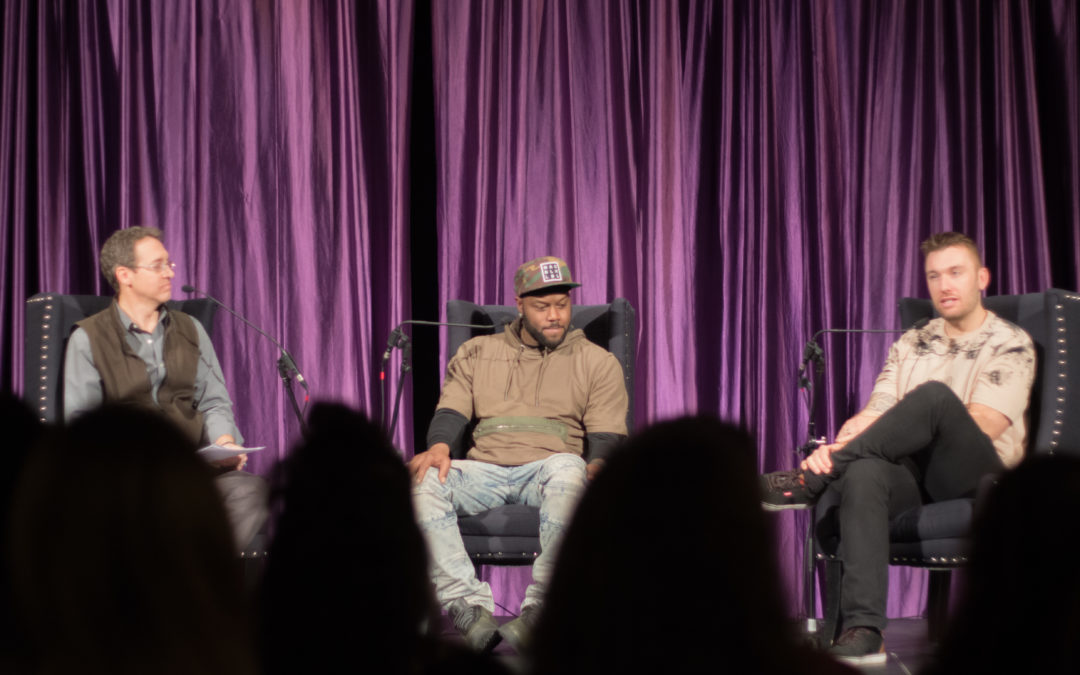Tuesday’s “The Gathering” featured Lee Camp sharing the story of reconciliation between Andrew Collins and Jameel McGee.
Camp interviewed the two men about how they met. Collins, a former police officer in Benton Harbor, Michigan, saw McGee walking down the street one day. Since his day was coming to a close, and he had put no one behind bars, he wrongfully arrested McGee, claiming he saw the law-abiding citizen with drugs and the intent to sell.
McGee faced four years in prison after being charged with possession of one ounce of crack cocaine.
“I felt like I was guilty until innocent,” McGee said. “Everyone thought I was guilty right off the bat…even my family thought I was guilty.”
While McGee was still locked up, Collins was found out and charged with falsifying reports and lying under oath. This earned him a year in jail.
“It was almost immediately after I was caught that I started getting the old me back,” Collins said. “When I was in jail, I felt God was calling me back to Benton Harbor to seek reconciliation . . . Everyone thought I was crazy and needed to flee.”
To everyone’s bewilderment, Collins returned to the city in which his crimes took place. There, he began working through a faith-based employment agency. As luck, or Providence, would have it, it was the same agency McGee used.
Instead of doing what most people would do and hurting, ignoring or harassing Collins, McGee chose to forgive him.
“The situation was hurting me further,” McGee said. “I was hurting people in prison because I was hurt, and that was the only way I could deal with it. I wanted to give [my son] something positive to look up to.
“I let it go because it was eating me up inside.”
One thing that greatly helped the reconciliation process was Collins’ apology. He said through their newfound friendship he kept experiencing layers of how he hurt McGee.
“He’s so grace-filled toward me,” Collins said. “He’s a reminder of Jesus in the flesh for me.”
The two friends talked about the institutional issues that led to the vast difference in their sentencing. Collins, a Caucasian male, was convicted by the judge he had previously lied to. McGee, an African-American male, took his conviction to trial, knowing his innocence. Because of this, the judge said he wanted to punish him as severely as he possibly could. Though McGee had fewer offenses, he served three times the amount of time as Collins.
McGee gave the audience advice on forgiveness. “Forgive. Let it go,” he said. “Let God deal with it. In my case, it was killing me. I had to let it go, and that’s giving me so much life.”
That forgiveness gave him a new, unsuspecting friend as well. Collins shared advice on humility and apology with the audience.
“God cannot bless you until you let that go,” he said. “If you owe someone that apology, give it to them. God wants to release you from that.”
The two have co-authored a book entitled Convicted. The book shares their story in more depth and elaborates on their journey to reconciliation.

